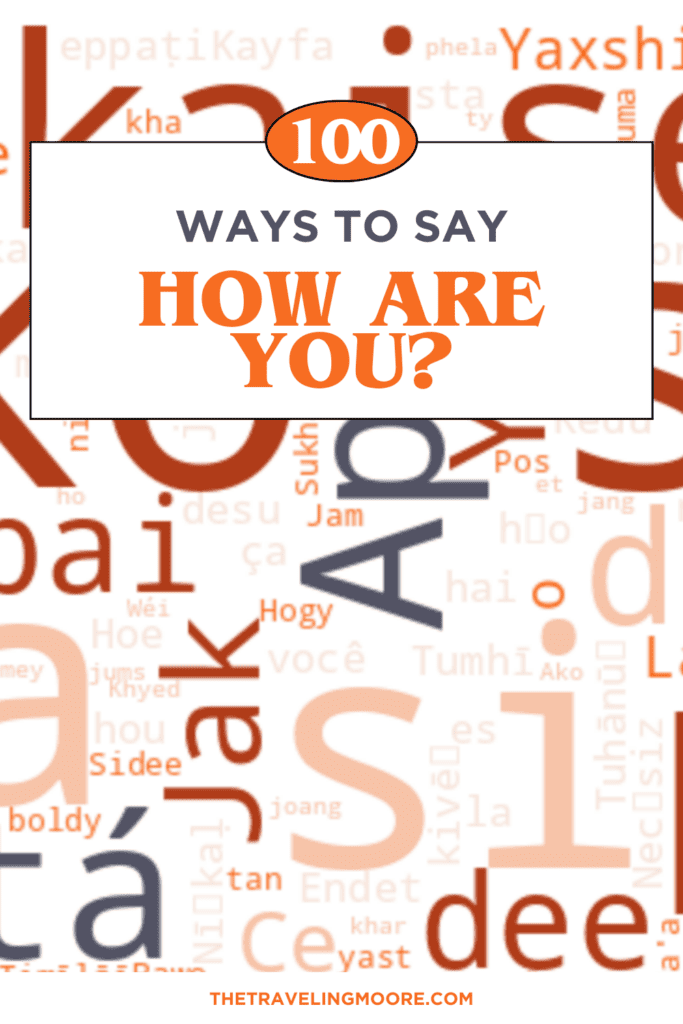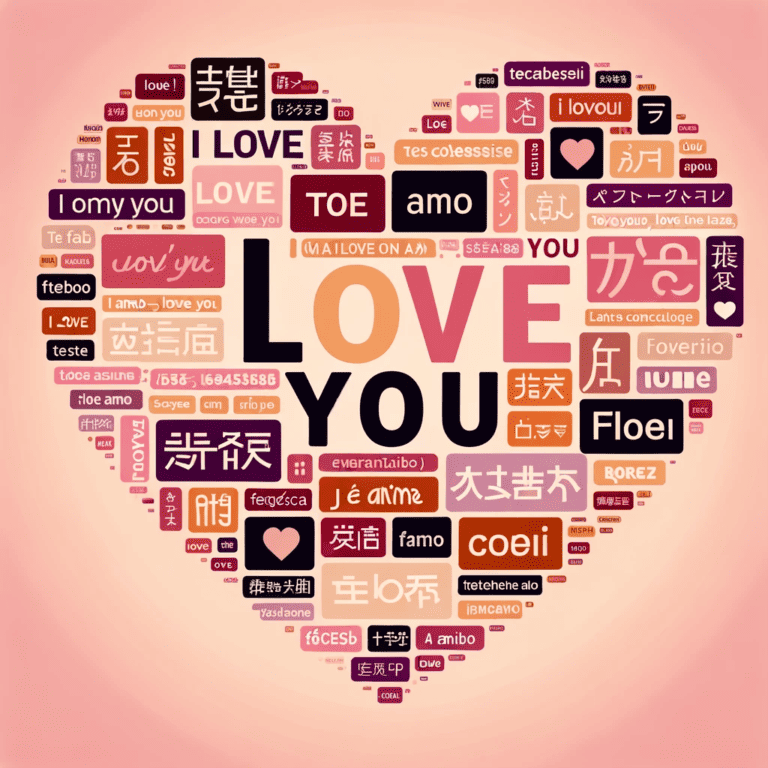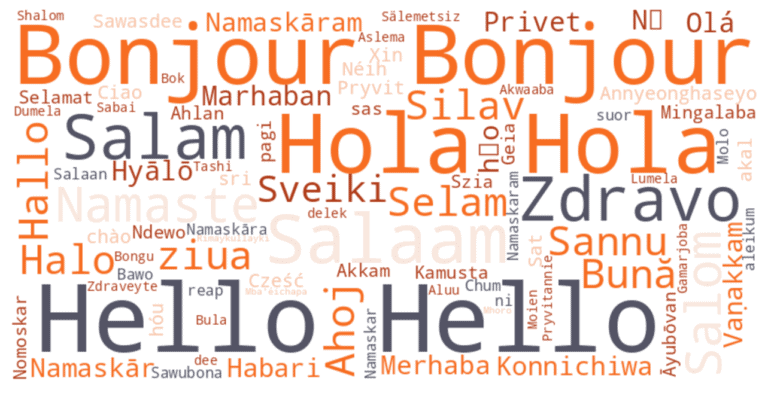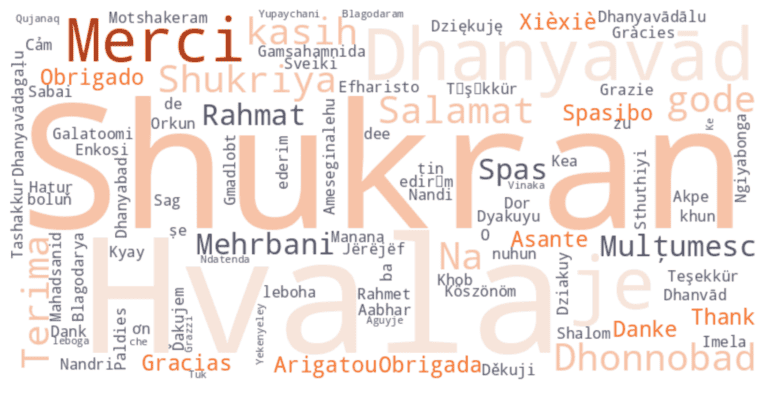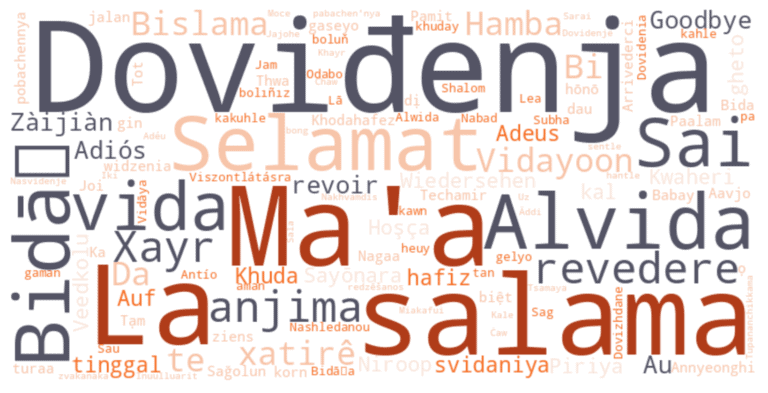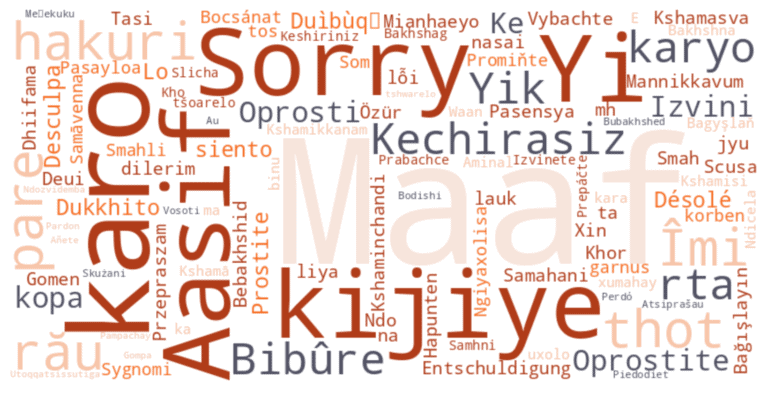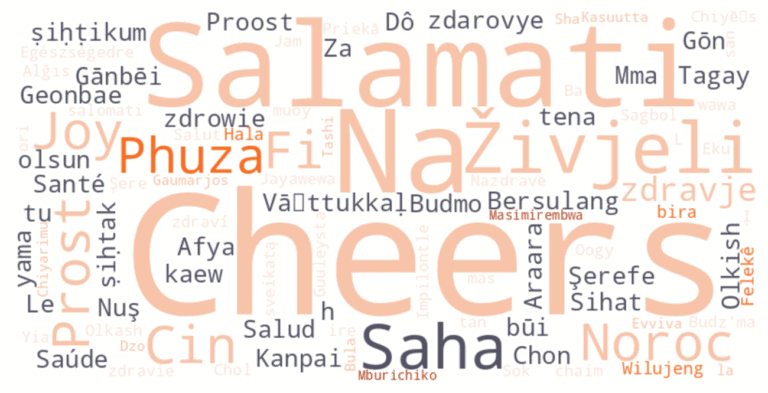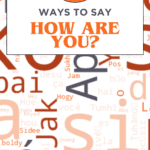100 Ways To Say How Are You in Different Languages
Traveling opens up a world of new connections and conversations, and one of the most genuine ways to engage with someone is by asking how they are. Understanding how to say “how are you” in different languages is not just a conversation starter; it’s a gesture of goodwill and interest in the well-being of others.
Whether it’s “¿Cómo estás?” in Spanish, “お元気ですか?” in Japanese, or “Comment ça va?” in French, picking up these phrases can transform your travel experiences, making them more engaging and meaningful.
It shows you care enough to step into another’s language and culture, even if it’s just with a simple question.
With this in mind, I’ve crafted a guide to help you ask “how are you” in 100 different languages. Take the time to memorize this phrase for your next trip to help make an instant connection with the local people.
Some links on this blog are affiliate links, meaning I may earn a commission at no extra cost to you if you make a purchase through them. All opinions are my own, and I only recommend products and services I personally use and believe in. Thanks for your support!
How to Say How Are You Around the World
| Language | How Are You (English Spelling) | Phonetic Pronunciation |
|---|---|---|
| English | How are you? | How are you? |
| Mandarin Chinese | 你好吗? (Nǐ hǎo ma?) | Nee how ma? |
| Hindi | आप कैसे हैं? (Aap kaise hain?) | Aap kai-se hain? |
| Spanish | ¿Cómo estás? | Koh-moh es-tahs? |
| French | Comment ça va? | Koh-mohn sah vah? |
| Standard Arabic | كيف حالك؟ (Kayfa ḥalak?) | Kay-fa ha-lak? |
| Bengali | আপনি কেমন আছেন? (Āpani kēmōna āchēn?) | Aa-po-ni ke-mon aa-chen? |
| Russian | Как дела? (Kak dela?) | Kak de-la? |
| Portuguese | Como você está? | Koh-moh vo-se esh-tah? |
| Urdu | آپ کیسے ہیں؟ (Aap kaise hain?) | Aap kai-se hain? |
| Indonesian | Apa kabar? | Ah-pa ka-bar? |
| German | Wie geht es Ihnen? | Vee gayt es ee-nen? |
| Japanese | お元気ですか? (Ogenki desu ka?) | Oh-gen-ki des-ka? |
| Swahili | Habari gani? | Hah-ba-ree gah-nee? |
| Marathi | तुम्ही कसे आहात? (Tumhī kase āhāt?) | Tum-hee ka-se aa-haat? |
| Telugu | మీరు ఎలా ఉన్నారు? (Mīru elā unnāru?) | Mee-ru e-laa un-naa-ru? |
| Turkish | Nasılsınız? | Nah-suhl-suh-nuhz? |
| Tamil | நீங்கள் எப்படி இருக்கிறீர்கள்? (Nīṅkaḷ eppaṭi irukkiṟīrkaḷ?) | Nee-ngal ep-pa-di ir-uk-ki-ree-rgal? |
| Korean | 잘 지내세요? (Jal jinaeseyo?) | Jal ji-nae-se-yo? |
| Vietnamese | Bạn khỏe không? | Ban khweh khom? |
| Italian | Come sta? | Koh-meh stah? |
| Hausa | Yaya dai? | Yah-yah dai? |
| Thai | สบายดีไหม (Sabai dee mai?) | Sa-bai dee mai? |
| Cantonese | 你好嗎? (Nei hou ma?) | Nay ho ma? |
| Persian | چطور هستید؟ (Chetor hastid?) | Che-tor has-tid? |
| Gujarati | તમે કેમ છો? (Tame kem cho?) | Ta-may kem cho? |
| Polish | Jak się masz? | Yak sheh mash? |
| Ukrainian | Як справи? (Yak spravy?) | Yak spra-vy? |
| Punjabi | ਤੁਹਾਨੂੰ ਕਿਵੇਂ ਲੱਗ ਰਿਹਾ ਹੈ? (Tuhānūṁ kivēṁ lag rihā hai?) | Tu-ha-noo ki-ven lag re-ha hai? |
| Dutch | Hoe gaat het? | Hoo gaat het? |
| Burmese | နေကောင်းလား (Nei kaung la?) | Nay kaung la? |
| Filipino | Kumusta ka? | Koo-mus-ta ka? |
| Romanian | Ce faci? | Che fa-chi? |
| Egyptian Arabic | عامل إيه؟ (Amel eh?) | Aa-mel eh? |
| Malay | Apa khabar? | Ah-pa kha-bar? |
| Uzbek | Yaxshimisiz? | Yahkh-shee-mee-siz? |
| Sindhi | ڪيئن آهيو؟ (Kya aahio?) | Kya aa-hiyo? |
| Amharic | እንዴት ነህ? (Endet neh?) | En-det neh? |
| Oromo | Akkam jirtu? | Ah-kkam jeer-tu? |
| Igbo | Kedu? | Kay-doo? |
| Azerbaijani | Necəsiz? | Neh-je-siz? |
| Sundanese | Kumaha damang? | Koo-ma-ha da-mang? |
| Kurdish | Tu çawa yî? | Too cha-wa yee? |
| Moroccan Arabic | لباس عليك؟ (Labas alik?) | La-bas a-leek? |
| Cebuano | Kumusta ka? | Koo-mus-ta ka? |
| Nepali | तिमीलाई कस्तो छ? (Timīlāī kasto cha?) | Ti-mee-lai kas-to cha? |
| Serbo-Croatian | Kako ste? | Ka-ko ste? |
| Hungarian | Hogy vagy? | Hodj va-dj? |
| Algerian Arabic | لاباس عليك؟ (Labas alik?) | La-bas a-leek? |
| Sinhala | කොහොමද? (Kohomada?) | Ko-ho-ma-da? |
| Northern Kurdish | Tu çawa yî? | Too cha-wa yee? |
| Czech | Jak se máte? | Yak se ma-te? |
| Greek | Πώς είσαι; (Pos eisai?) | Pos ee-sai? |
| Chittagonian | তুমি কেমন আছো? (Tumi kemon acho?) | Tu-mi ke-mon a-cho? |
| Zulu | Unjani? | Oon-jah-nee? |
| Khmer | សុខសប្បាយជាទេ? (Sok sabay jea te?) | Sok sa-bay jay teh? |
| Turkmen | Näme boldy? | Nae-meh bol-dy? |
| Kannada | ನೀವು ಹೇಗಿದ್ದೀರಿ? (Nīvu hēgiddīri?) | Nee-vu he-gid-dee-ri? |
| Xhosa | Unjani? | Oon-jah-nee? |
| Pashto | څنګه یاست؟ (Tsanga yast?) | Tsan-ga yast? |
| Somali | Sidee tahay? | See-deh ta-hay? |
| Malayalam | സുഖമാണോ? (Sukhamaano?) | Soo-kha-maa-no? |
| Saraiki | کی حال اے؟ (Ki haal ae?) | Kee haal ae? |
| Hausa (Ghanaian) | Yaya dai? | Yah-yah dai? |
| Uzbek (Northern) | Yaxshimisiz? | Yahkh-shee-mee-siz? |
| Yoruba | Bawo ni? | Bah-wo nee? |
| Oriya | ତୁମ କେମିତି ଅଛ? (Tuma kemitī acha?) | Too-ma ke-mi-tee a-cha? |
| Fula | Jam tan? | Jam tan? |
| Romanian (Moldovan) | Ce faci? | Che fa-chi? |
| Balochi | تو کہ سے او؟ (Taw kha se o?) | Taw kha se o? |
| Kazakh | Қалайсыз? (Qalaysız?) | Qa-lai-siz? |
| Sindhi (Singaporean) | ڪيئن آهيو؟ (Kya aahio?) | Kya aa-hiyo? |
| Hebrew | מה שלומך? (Ma shlomcha?) | Ma shlom-cha? |
| Lao | ສະບາຍດີບໍ? (Sabai dee baw?) | Sa-bai dee baw? |
| Bulgarian | Как си? (Kak si?) | Kak see? |
| Tunisian Arabic | لاباس عليك؟ (Labas alik?) | La-bas a-leek? |
| Slovak | Ako sa máš? | A-ko sa mosh? |
| Belarusian | Як ты? (Yak ty?) | Yak tee? |
| Sesotho | U phela joang? | Oo phe-la jo-ang? |
| Lithuanian | Kaip sekasi? | Kaip se-ka-si? |
| Slovenian | Kako si? | Ka-ko see? |
| Latvian | Kā jums klājas? | Kah yums kla-yas? |
| Tajik | Чӣ хел? (Chi khel?) | Chee khel? |
| Bosnian | Kako ste? | Ka-ko ste? |
| Catalan | Com estàs? | Kom es-tahs? |
| Croatian | Kako ste? | Ka-ko ste? |
| Georgian | როგორ ხარ? (Rogor khar?) | Ro-gor khar? |
| Ewe | Wo ho te sɛn? | Wo ho teh sen? |
| Macedonian | Како си? (Kako si?) | Ka-ko see? |
| Fijian | Vakacava tiko? | Va-ka-cha-va tee-ko? |
| Maltese | Kif int? | Kif int? |
| Tigrinya | ከመን እዩ? (Kemey eyu?) | Ke-mey e-you? |
| Greenlandic | Qanoq ippit? | Qa-nok ip-pit? |
| Montenegrin | Kako ste? | Ka-ko ste? |
| Tibetan | ཁྱེད་རང་ག་པེ་རེ་རེ། (Khyed rang ga pe re re?) | Khyed rang ga pe re re? |
| Tswana | O tsogile jang? | O tso-gi-le jang? |
| Luxembourgish | Wéi geet et? | Wei geet et? |
| Quechua | Allillanchu? | A-yee-yan-choo? |
| Shona | Wakadini? | Wa-ka-dee-nee? |
| Guarani | Mba’éichapa? | Mba-ey-cha-pa? |
How to Pronounce How Are You in Different Languages
Starting a conversation with ‘how are you’ in the local language is a great way to connect. I’ve listed the phrases and their phonetic pronunciations, but if you’re struggling to get them right, this video will be incredibly helpful.
It shows you how to say ‘how are you’ in several languages, perfect people who learn better by listening (like me).
Before You Go…
You now know how to ask “how are you” in multiple languages, which is great for starting conversations. Next, take a moment to learn how to say ‘thank you’ in different languages, an essential follow-up in any conversation.
Related Posts:
- How to Say Hello in All Languages for World Travelers
- 100 Ways to Say Goodbye in Different Languages
- How to Say Please in Different Languages (100 Ways)
- How to Say Thank You in All Languages (100 Most Common)
- How to Say Sorry in Different Languages Around the World
- 100 Ways to Say Cheers in Other Languages (For Travelers)
- How to Say I Love You in Different Languages & Countries
Pin for Later:
